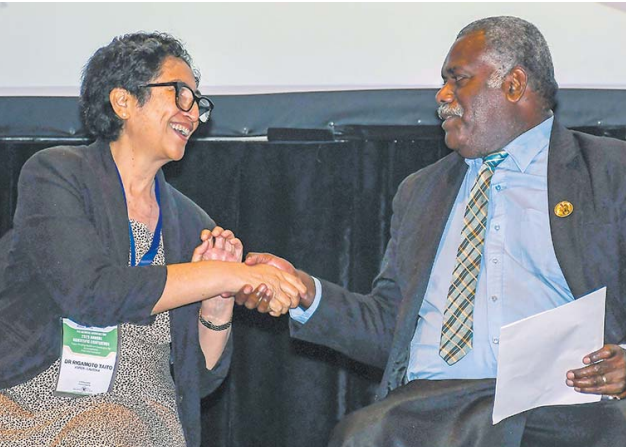GOOD health is the foundation of every society that supports one to progress with education, productive workforce, and sustainable development, says Women Minister Sashi Kiran.
Speaking at the Fiji Medical Association 2025 Annual Scientific Conference in Nadi on Saturday, Ms Kiran said this year’s theme “Future-proofing healthcare standards in Fiji: Accountability, ethics, and innovation”, could not be timelier.
“It speaks directly to our national priorities: strengthening resilience, ensuring equity, and building systems that can withstand the challenges of tomorrow — be they economic, social, or environmental,” she said.
“Families also need the security of social protection that acts as the safety nets and shields them from falling into poverty when illness, disability, or unemployment strikes.”
Ms Kiran said health and social protection were interrelated.
“Together, they protect both life and livelihood.
“When people fall sick, it is often not the illness alone that devastates them, but the financial costs of treatment, the loss of income, and the burden on families. We can break this cycle by linking health to social protection.
“Both are critical pillars of Fiji’s long-term development under the National Development Plan 2025–2029 and Vision 2050. A strong, accountable, and ethical healthcare system ensures that our most vulnerable are not left behind.
“This is why Government has allocated $207.9million to the ministry this year — 86.5 per cent of which is directed to social protection allowances.
“The Social Protection programs are designed to accommodate the basic needs of the most vulnerable and prevent them from falling into further vulnerability, poverty or social exclusion.
“There are targeted programs for senior citizens, people living with disability, children at risk, support to low-income households; and The Food Allowance for Rural Pregnant Mothers to incentivise early access to reproductive healthcare.
“In addition, the free medicine program ensures access to essential medicines for those who need it most.”



